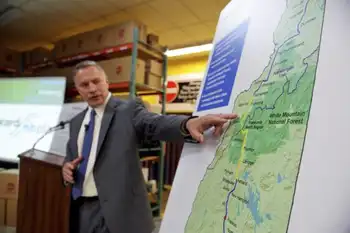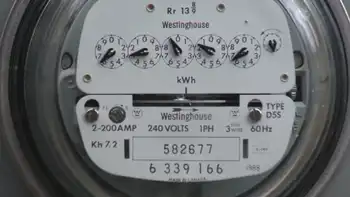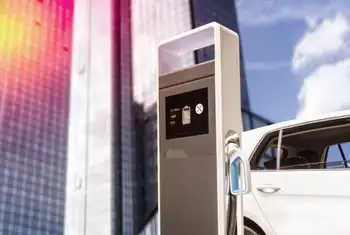An idiotÂ’s guide to green power
By The Independent
NFPA 70e Training
Our customized live online or in‑person group training can be delivered to your staff at your location.

- Live Online
- 6 hours Instructor-led
- Group Training Available
A fortnight ago Ed Miliband, the Climate Secretary, confirmed generous payments for home solar panel and wind turbine systems (while removing grants for their installation). And just recently the energy regulator, Ofgem, launched a certificate scheme for green energy tariffs.
Both schemes could have transformed Britain's poor record on renewable power. At present only 5 per cent of UK power comes from renewable sources, while 2 per cent of energy customers are on "green" tariffs. So will these two initiatives lead to low-carbon power for the people – and what's in it for you?
First, don't bother generating your own electricity or buying a "green" tariff until you have stopped energy leaking from your home; it's like pumping fuel into a car without fixing a hole in the petrol tank. Put plastic strips round drafty windows and reflective paper behind radiators, insulate lofts to 27cms and – surprising how many people haven't done this – fit eco-lightbulbs in every socket. They exist for halogen spotlights and dimmer switches. Assuming you've done this, the choice is between turning yourself into a green generator or paying someone to do the job, or both.
From April, a "Feed in Tariff" will guarantee payments to homes with solar panels and other micro-generation. A "well-sited" 2.5kWh PV solar scheme, the Department for Climate Change says, should earn £900 a year and £140 in energy savings. Some have suggested this means you can pay for solar panels in a little more than a decade. This is misleading because you would no longer have your capital. Based on a 10 per cent annual rise in normal energy costs, it will take at least 25 years to make solar panels work as an investment. Nonetheless the scheme is much better than the previous grant regime. And the financial case for going solar may improve if, as expected, banks offer renewable power loans later this year.
Paying for someone to generate green energy is a much easier proposition. In practice though, the Big Six suppliers have capitalized on environmentalism by offering tariffs that merely "match" households to renewable power generation. To be blunt, this is a scam. By law suppliers are obliged to source a proportion of green power and are simply charging a premium for what they would have had to do anyway. And even then they have failed to hit the Government's current 9.7 per cent target.
Three years ago Ofgem announced plans to reform this dodgy market. This week it finally launched its green energy certificate, which requires "green" tariffs to provide an additional environmental benefit. But to qualify companies merely have to supply renewable power – which they can do by "matching" – and offset one tonne of carbon dioxide per customer. Ofgem has set up an independent panel to approve these "green" tariffs. So far it has approved 10 schemes run by the Big Six and Good Energy, which at least is a renewable energy specialist. On average these tariffs cost an extra £25 a year. Offsetting a tonne of carbon online costs £8.10.
No wonder, then, that Ecotricity is refusing to take part. Dale Vince, founder of the wind pioneer, says: "The green energy these companies will sell comes from the existing pool of 5 per cent renewable energy in Britain. Nothing more will be built. This does not make Britain any greener."
The Energy Saving Trust is not chuffed either, saying that people expect truly "green" tariffs to generate more green energy. "Those signing up for a green tariff in the belief they are contributing to more energy being generated from renewable sources could be disappointed with the reality, with the renewable energy created already absorbed in existing targets," warns its director of strategy, Marian Spain.
Explaining why the scheme took three years to launch – during which time suppliers have been happily "matching" eco customers to higher prices – Ofgem said it had been working "with a wide range of stakeholders to understand the issues and different views and to develop these proposals".
Again, Britain's most timid regulator has capitulated to the dismal big suppliers. Its chief executive, Alastair Buchanan, who has failed to create an energy system fit for the next decade, gets paid £260,000 a year to come up with rubbish like this.











